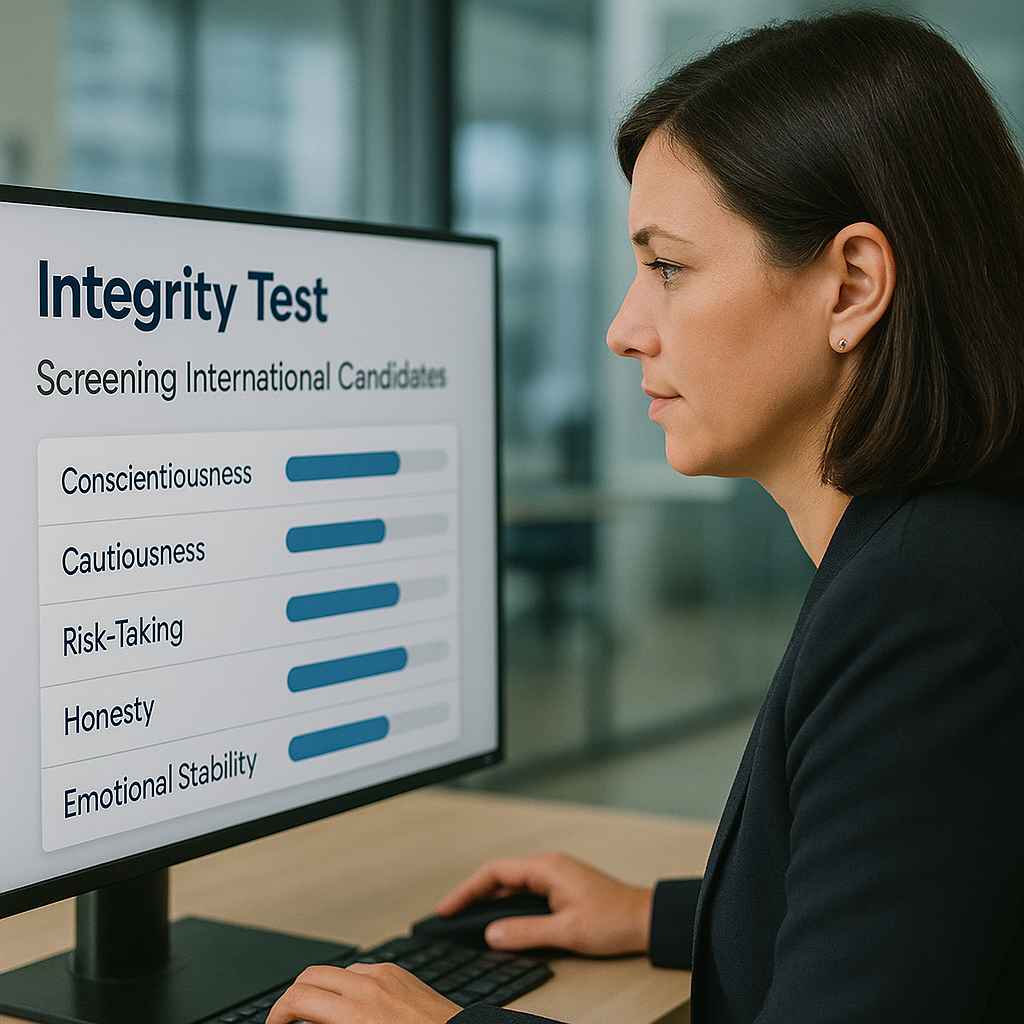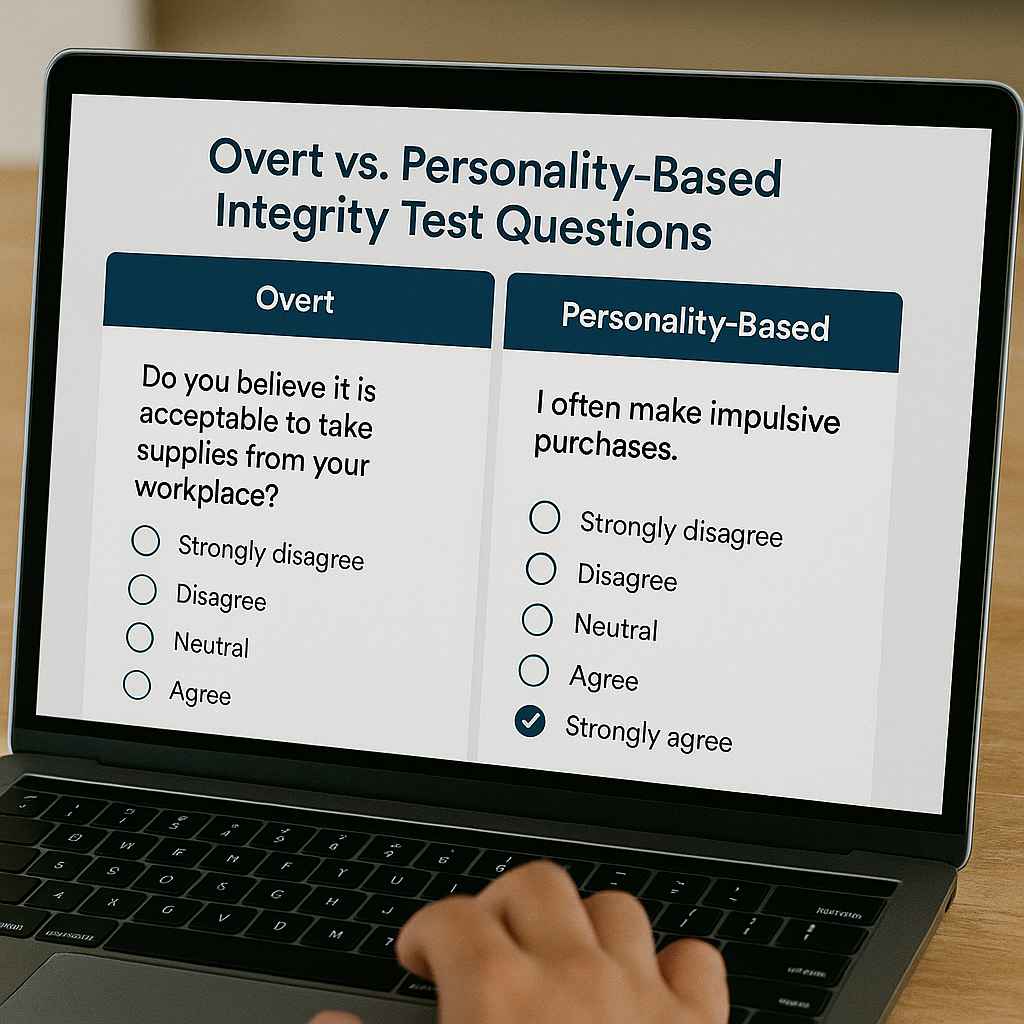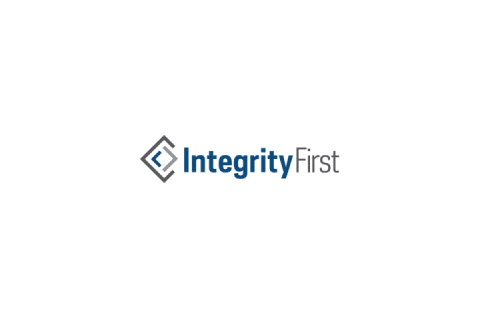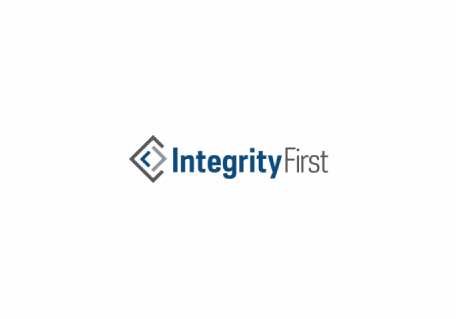When you’re hiring, you’re not just filling a seat—you’re trusting someone with your data, customers, and brand. Skills tell you what a candidate can do; integrity tells you what they will do when nobody’s watching. That’s where personality-based integrity tests come in.
Unlike overt honesty tests that bluntly ask, “Have you ever stolen office supplies?”, personality-based versions dig deeper. They measure traits—like conscientiousness or risk-taking—that predict ethical (or unethical) behavior. Let’s unpack why these tests matter, how they work, and how to use them alongside interviews and questionnaires.
What Is a Personality-Based Integrity Test?

A personality-based integrity test is a psychometrically validated questionnaire that:
- Targets broad traits (e.g., dependability, rule adherence, risk aversion).
- Infers integrity through responses—candidates don’t always see obvious “right” answers.
- Flags red-zone profiles likely to engage in counterproductive work behaviors (theft, data misuse, time fraud).
Because questions feel indirect, applicants are less likely to fake “saintly” answers, giving you cleaner, more honest data.
Why Choose Personality-Based Over Overt Tests?
| Feature | Overt Integrity Test | Personality-Based Integrity Test |
| Question style | Direct: “Is stealing wrong?” | Indirect: “Rules slow innovation.” (Agree/Disagree) |
| Faking risk | High—answers are obvious | Lower—social-desirability clues hidden |
| Legal defensibility | Good (if well-designed) | Excellent—focuses on job-related traits |
| Insight depth | Surface-level honesty | Deeper view of ethics + temperament |
Key takeaway: A personality-based test gives you both honesty signals and broader behavior predictors, making it a stronger early-screen tool.
Core Traits & What They Predict

| Trait Measured | High Score Suggests… | Low Score Suggests… |
| Conscientiousness | Reliability, rule following | Carelessness, shortcuts |
| Risk Aversion | Cautious decision-making | Impulsive or thrill-seeking |
| Agreeableness | Cooperative, team-oriented | Potential conflict, skepticism |
| Emotional Stability | Handles pressure ethically | Stress may trigger poor choices |
| Altruism | Focus on group success | Self-interested actions |
Research in personality psychology, such as this widely cited study on personality predictors of integrity, supports the use of these traits—particularly conscientiousness and agreeableness—as strong indicators of workplace ethics and counterproductive behavior risk.
Sample Questions & Scoring Logic
Below are real-style sample items with a peek at what each answer reveals:
| Question (Likert 1-5)<br>(1 = Strongly Disagree, 5 = Strongly Agree) | What a High Score Means | What a Low Score Means |
| “Deadlines are guidelines, not absolutes.” | Flexible but may dismiss rules | Values structure and accountability |
| “I enjoy taking big risks if the payoff is high.” | Possible rule-breaking for gains | Prudent decision-maker |
| “Mistakes should be hidden if no one is harmed.” | Ethical gray-area tolerance | Prefers transparency |
| “I feel guilty if I arrive two minutes late.” | Strong responsibility sense | Lax timeliness—potential absenteeism |
| “Policies often get in the way of productivity.” | May rationalize shortcuts | Respects process and protocol |
Scoring Tip:
Create weightings for each trait based on role risk. A finance role may weight conscientiousness higher; a creative role may accept more risk-taking.
Integrating Tests Into Your Hiring Workflow

- Early Online Screen
- Send the test link right after résumé submission.
- Auto-flag below-threshold scores for review.
- Send the test link right after résumé submission.
- Behavior-Based Interview Follow-Up
- Use flagged traits to craft interview probes.
- Need inspiration? See our guide on testing integrity in an interview.
- Use flagged traits to craft interview probes.
- Supplement With Questionnaires
- For deeper dives, add a short integrity assessment questionnaire before final decision day.
- For deeper dives, add a short integrity assessment questionnaire before final decision day.
- Decision Matrix
- Combine test score + interview behavior + references for a 360° view.
- Combine test score + interview behavior + references for a 360° view.
Real-World Benefits
- Lower Theft & Fraud: Clients report up to 25 % drop in shrinkage after adopting personality-based integrity tests.
- Reduced Turnover: High-integrity hires stay longer—saving on rehiring costs.
- Culture Boost: Teams trust each other more, fostering collaboration.
- Legal Protection: Objective data supports fair hiring decisions.
Pro-tip: Tools like IntegrityFirst Tests integrate seamlessly with most ATS platforms, delivering instant, data-driven insight without slowing your hiring pipeline.
Related Resources
| Resource | What You’ll Learn |
| Why Candidates Admit Dishonesty | Psychological reasons applicants confess unethical acts. |
| Integrity Assessment Questionnaire Guide | Step-by-step blueprint for crafting your own short-form questionnaire. |
| How to Test Integrity in an Interview | Live interview tactics to verify what the test results suggest. |
FAQ
Q1. Can candidates fake a personality-based integrity test?
They can try, but indirect items and internal consistency checks make faking far tougher than overt tests.
Q2. How long does the assessment take?
Most versions are 10–15 minutes, keeping applicant drop-off low.
Q3. Is this legally safe in every state?
Yes—if the test focuses on job-relevant traits and avoids protected-class questions. IntegrityFirst Tests are fully validated for compliance.
Q4. Will high creativity roles score poorly?
Not necessarily. Weight traits according to role. A creative marketer may score high in risk-taking yet still meet integrity thresholds in conscientiousness.
Final Thoughts
Personality-based integrity tests give you x-ray vision into a candidate’s ethical DNA—without tipping them off to “correct” answers. Pair them with insightful interviews and you’ll reliably spot the difference between future culture champions and potential headaches.
Ready to add science-backed integrity testing to your pipeline? IntegrityFirst Tests offers plug-and-play assessments, clear scoring dashboards, and expert guidance, so you hire people you can trust—every time.






